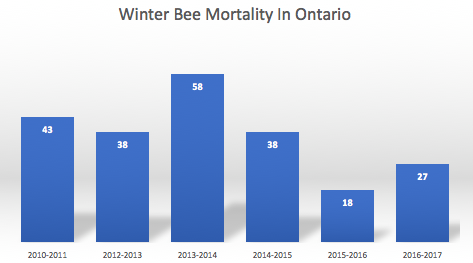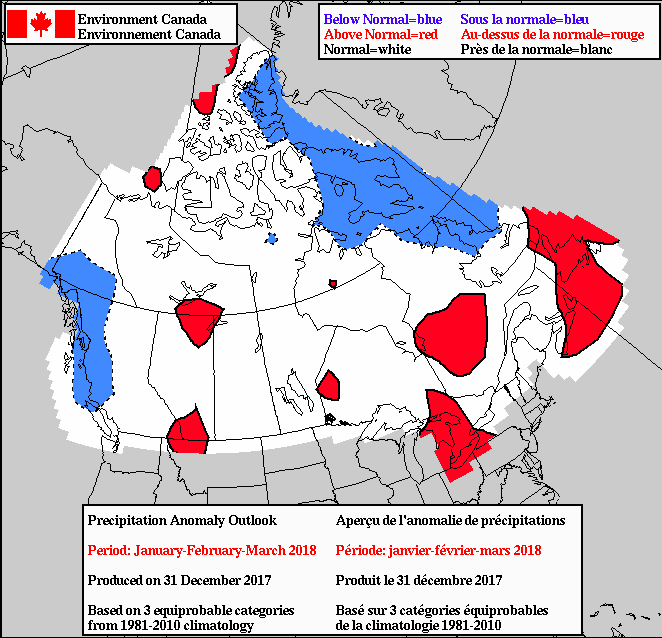By Vanessa Stark [1]
BELLEVILLE – Winter is having a major impact on Ontario beekeepers and they’re struggling to keep their hives alive.

Graphic by Vanessa Stark, QNet News
In the winter of 2014-15, 58 per cent of Ontario bees died. The loss in winter 2016-17 was 27 per cent, continuing the trend of high mortality rates.
According to the provincial Ministry of Environment and Climate [2], the sustainable level of bee deaths for a hive over the winter is around 15 per cent. Over the last 12 years, the average winter mortality rate for bees in Ontario has been 34 per cent.
Dan Borges, a research technician for the Ontario Beekeepers Association, [3] says this can be attributed to pest infestations of the hives going into the winter months.
“I think when we are talking about colonies going into winter and what is causing mortality over the winter, I think it’s mainly pest and diseases,” Borges told QNet News in a telephone interview Wednesday. “But that’s not the only reason bees can die.”
Other major causes for winter mortality [4] are failing queens, wet hives, disease and poor stock selection, according to Borges and Bee Works [5], a beekeeping information site.
Liz Corbett, president of the Quinte Beekeepers Association [6], said bees need a little extra help surviving the cold months. It is important that beekeepers be aware of how to control hive environments during the winter to ensure a healthy hive in the spring, she said.
Bees need a warm, dry environment, which means that Ontario’s winter conditions can be very hard for both bees and beekeepers.
Environment Canada [7], The Weather Network [8], AccuWeather [9] and the Farmers’ Almanac [10] are all predicting higher-than-normal precipitation this winter for Ontario and the Great Lakes region.
Heavy snow causes one of beekeepers’ main concerns about winter: starvation.
Corbett said that too much snow at the end of winter coming into the spring means the beekeepers can’t get into the hives and the bees starve because they have eaten all the food stores.
“Bees don’t really become dormant” in winter, Corbett said. “So what happens is hopefully, the beekeeper has made sure there is sufficient food for the bees for the winter. They will make sure they have enough sucrose solution to build up the food stores going into winter. (The bees are) in there and raising babies and brood and larvae, and they need food stores to keep the hive alive during winter.”
There are 3,000 registered beekeepers in Ontario. The Quinte area has around 100 established beekeepers who have from one to 1, 500 hives.
Domesticated bees contribute 13 per cent of Ontario’s total annual agricultural crop value each year, according to the environment ministry. Honey and other products from bees account for almost $900 million in sales each year.
Beekeepers won’t know how this winter will affect the bees until the spring, when they can open up the hives without the cold shocking the bees inside.
Corbett said the best way to prevent winter mortality in a hive is for the beekeeper to be prepared and educated going into the winter months.
“I think it’s just important to educate yourself before you get your bees so that you are prepared and take it seriously and be responsible,” Corbett said. “Just as if you had acquired a pet, you know these are living things so they require care and attention and knowledge. I think that’s the main thing.”

Graphic by Vanessa Stark, QNet News
